From April 19th to 21st, 2024, the International Forum on Public Health and Emergency Workforce: Competency-based Education, hosted by Zhejiang University School of Public Health, was grandly convened at the Zijingang Campus of Zhejiang University. Over 240 guests attended the forum, including prominent scholars in the field of public health from 58 globally renowned universities across 20 countries and regions, as well as representatives from esteemed international organizations and government agencies such as the World Health Organization (WHO), the Bill & Melinda Gates Foundation, the Global Network for Academic Public Health (GNAPH), the Chinese Center for Disease Control and Prevention, the Health Commission of Zhejiang Province, the U.S. Centers for Disease Control and Prevention, the UK Health Security Agency, the Gulf Center for Disease Prevention and Control, and the Association of Schools of Public Health in Africa. This forum facilitated thorough discussions and exchanges on addressing significant global public health challenges, with a special focus on enhancing public health education and the collective improvement of competency in public health. The forum aimed to unite efforts and contribute to the development of international public health education.

With concerted efforts and shared wisdom, we forge ahead together towards a bright future
On April 20th, 2024, the International Forum on Public Health and Emergency Workforce: Competency-based Education was grandly opened at the QiuShi Lecture Hall. Dr. Xifeng Wu, the Dean and Qiushi Chair Professor of Zhejiang University School of Public Health, presided over the opening ceremony and extended a warm welcome to distinguished public health experts and scholars from all over the world. She also expressed deep appreciation for the generous support from the WHO, Bill & Melinda Gates Foundation, and GNAPH.
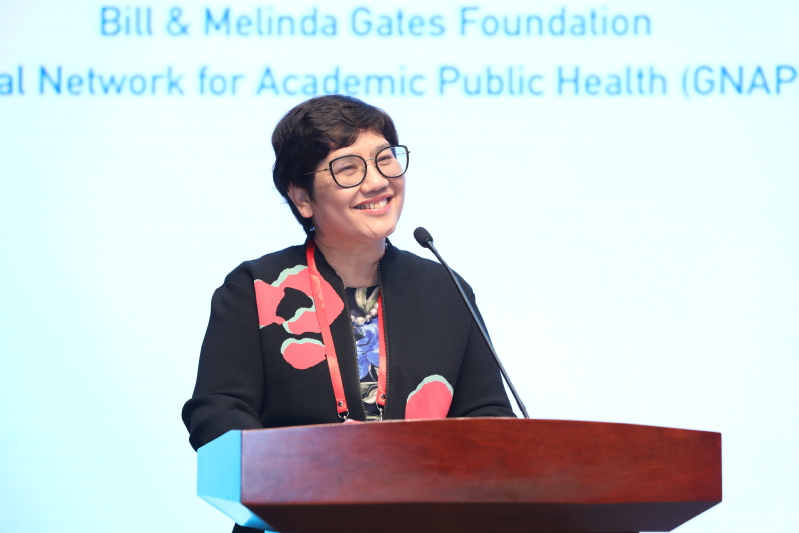
At the opening ceremony, Dr. Lizhong Wang, the Vice President of Zhejiang University, Mr. Renyuan Wang, the Director of the Health Commission of Zhejiang Province, Dr. Jim Yong Kim, the Former President of the World Bank, Dr. Laura Magaña, the President of GNAPH, Dr. Jian'an Wang, Academician and the President of the Second Affiliated Hospital of Zhejiang University School of Medicine, and Dr. Xiaoming Shi, the Deputy Director General of the Chinese Center for Disease Control and Prevention, and other leaders and experts, attended the forum and delivered opening remarks.
Vice President Lizhong Wang expressed profound gratitude to all sectors of society for their support of the reform and development of Zhejiang University, highlighting the distinct characteristics and remarkable achievements of Zhejiang University in building a national high-level public health school.
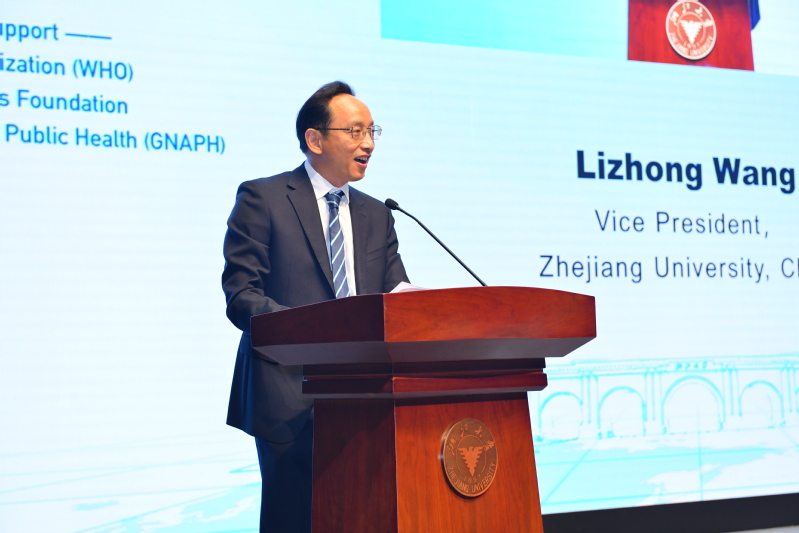
On behalf of the Health Commission of Zhejiang Province, Director Renyuan Wang extended enthusiastic congratulations on the convening of the forum. He emphasized the importance of public health in enhancing people's livelihood and well-being, stating that the forum would contribute to promoting all-round comprehensive, collaborative innovation among governments, universities, research institutions, and health organizations, and advancing the quality of public health workforce in the new era.
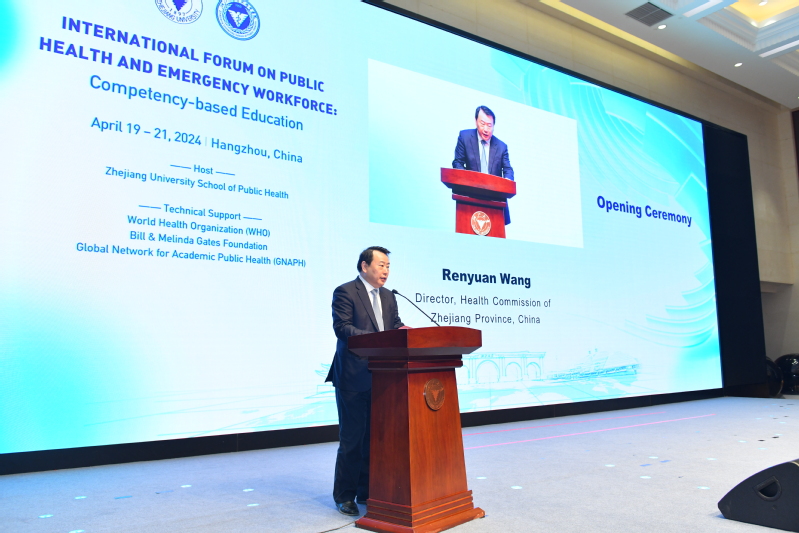
Dr. Jim Yong Kim expressed that China has been committed to the construction and development of public health, which has generated a positive driving effect among developing countries. He also emphasized that international exchanges and global collaboration would promote the rapid development of public health.
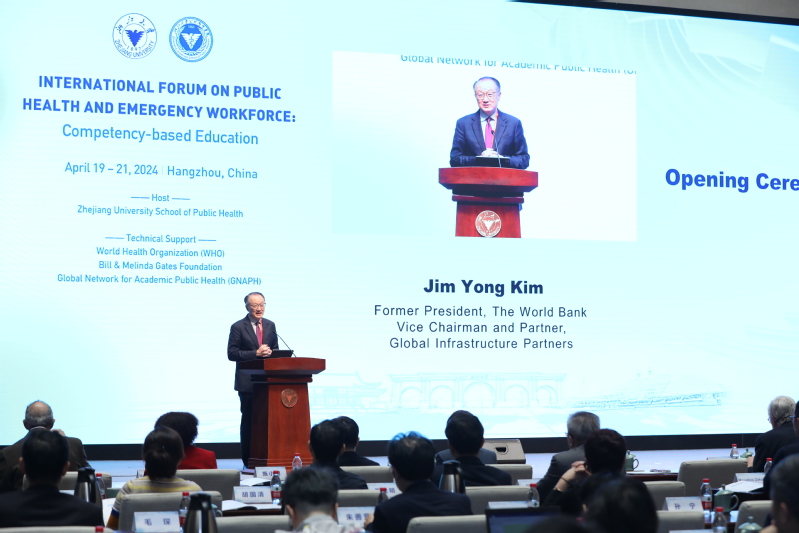
President Laura Magaña provided an overview of GNAPH and shared an optimistic vision for the forum to strengthen the capacity of the public health workforce in various countries and enable them to fulfill more comprehensive public health functions.
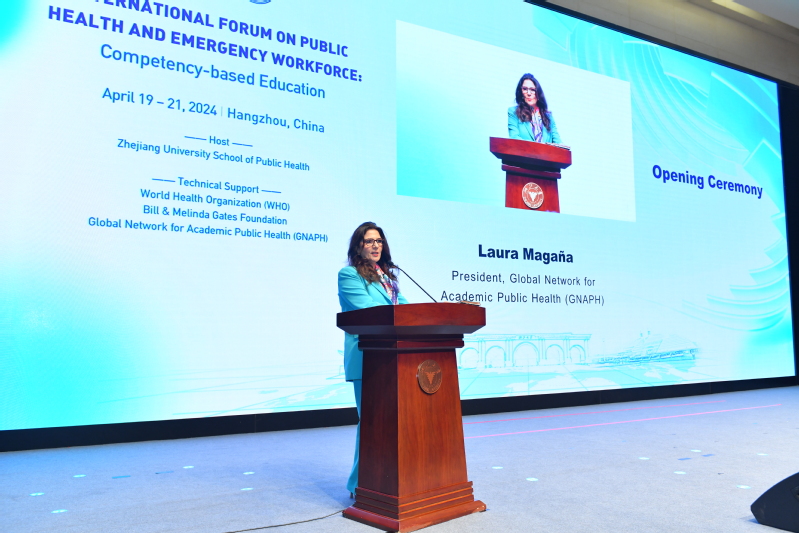
Academician Jian'an Wang, referencing the initiatives at the Second Affiliated Hospital of Zhejiang University as an example, emphasized the importance of integrating medical and preventive strategies as well as interdisciplinary collaboration in advancing global public health and emergency response. He expressed a strong commitment to contributing to a healthier and safer world.
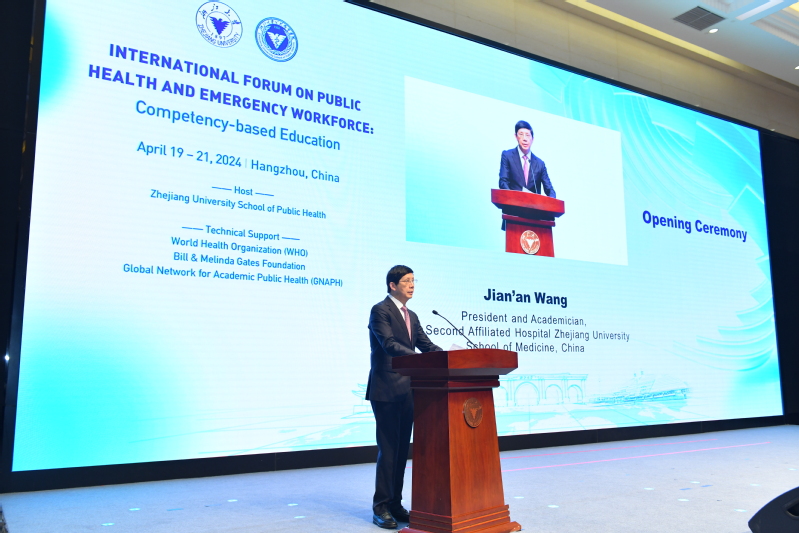
Deputy Director General Xiaoming Shi, stressed the significance of international exchanges and cooperation in building a high-quality public health talent pool. He also indicated that localizing the WHO's roadmap and action plan for national public health and emergency workforce would ensure the achievement of the comprehensive health coverage and public health security.
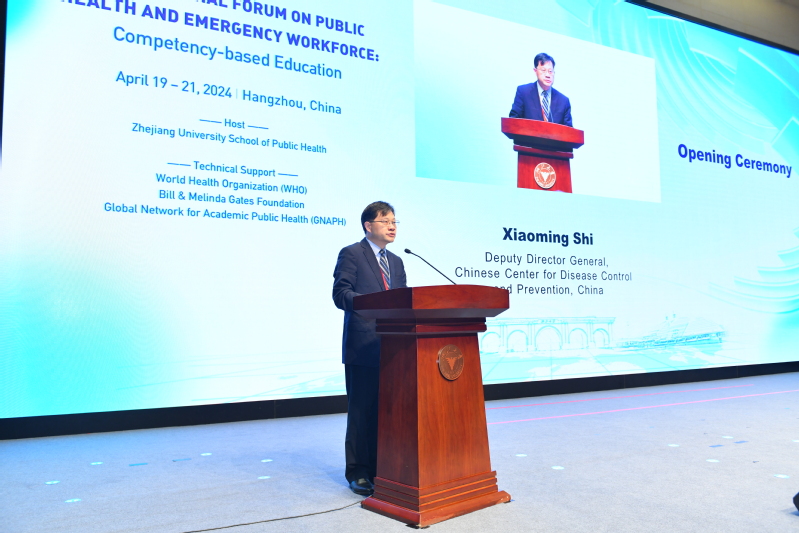
Inauguration Ceremony of Public Health Interprofessional Leadership Alliance (PHILA)
At this forum, initiated by the Zhejiang University School of Public Health, the Public Health Interprofessional Leadership Alliance (PHILA) was established to strengthen collaboration among global public health institutions. Under the hosting of Xu Fujie, the Deputy Director of the China Country Office of the Bill & Melinda Gates Foundation, Dean Xifeng Wu delivered the PHILA Statement. During the inauguration ceremony of PHILA, representatives from 31 domestic and international organizations came to the stage to witness this milestone event, expressing their support and aspirations for PHILA.
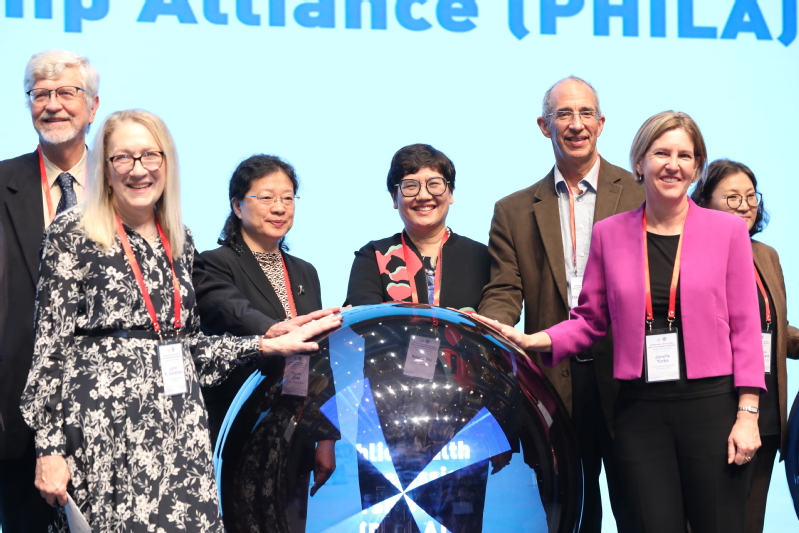
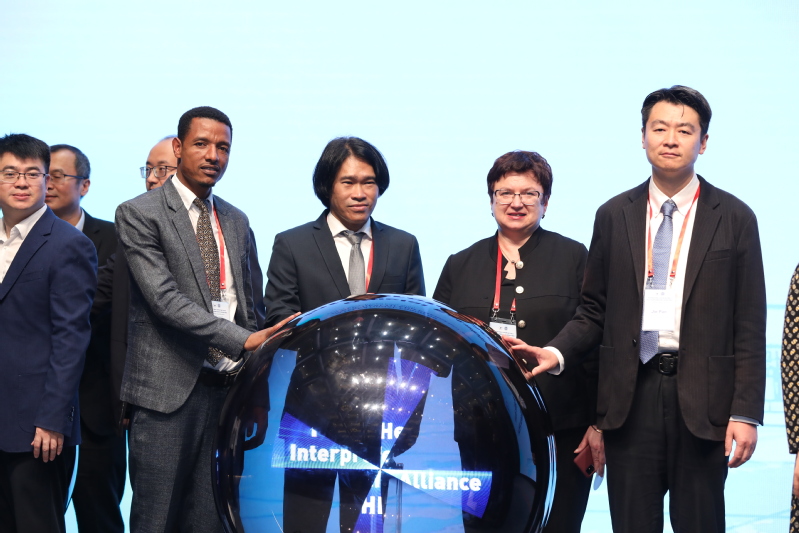
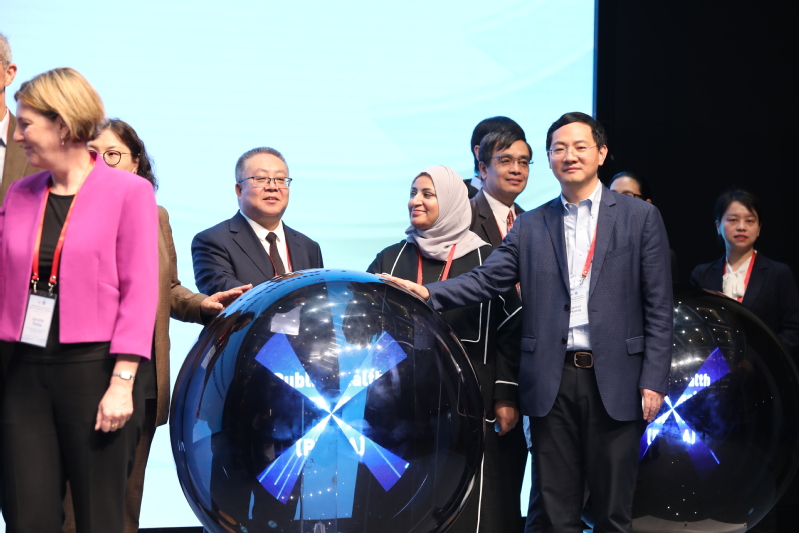
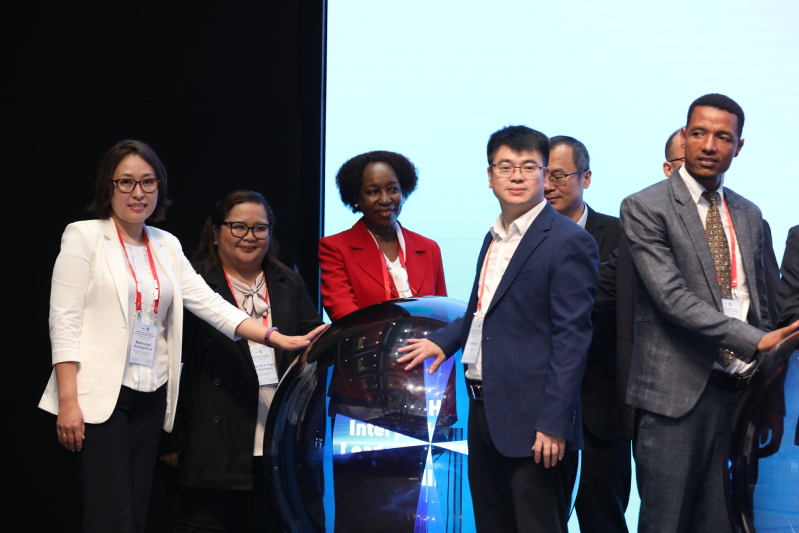
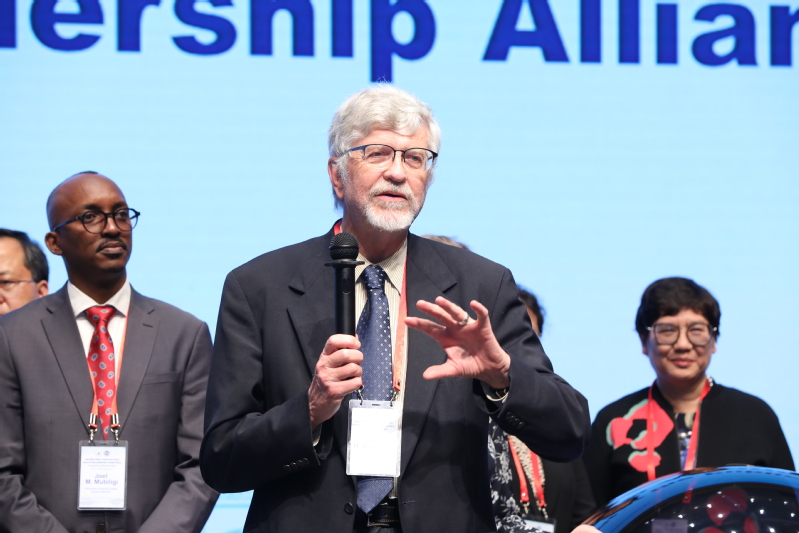
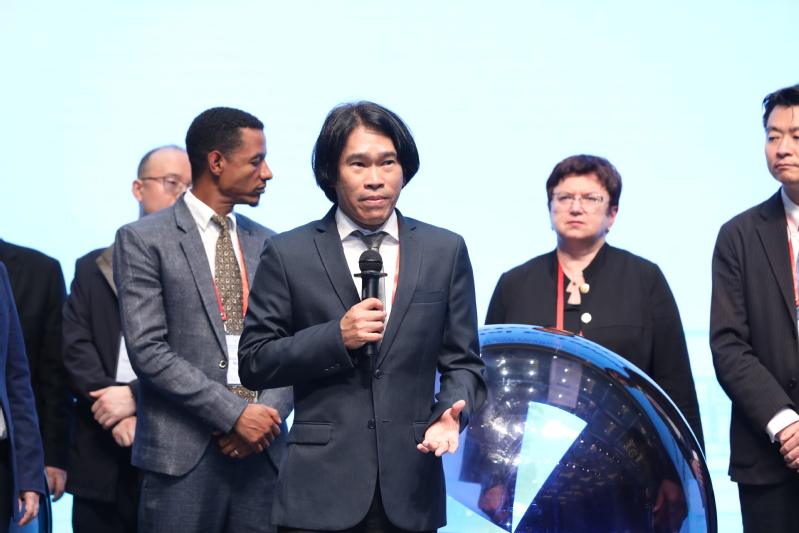
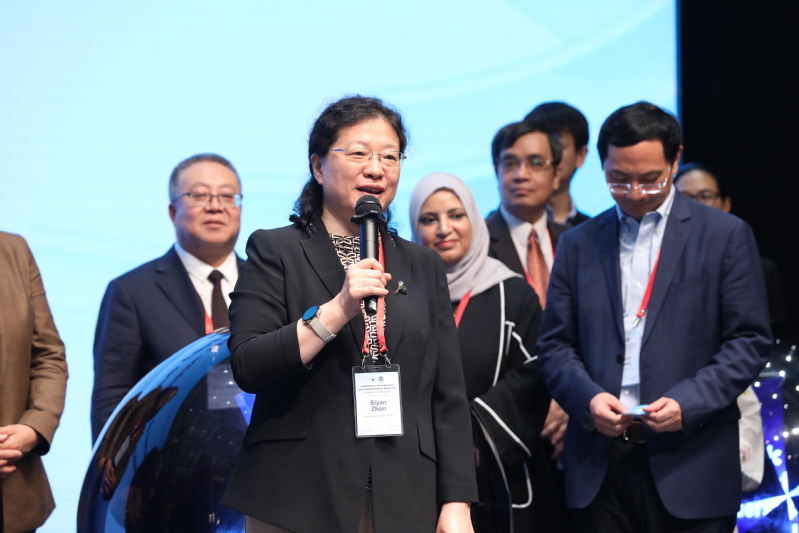
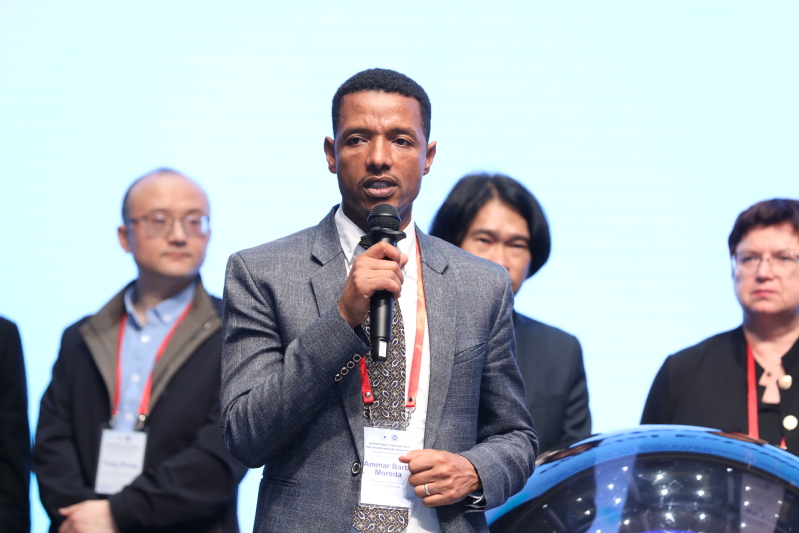
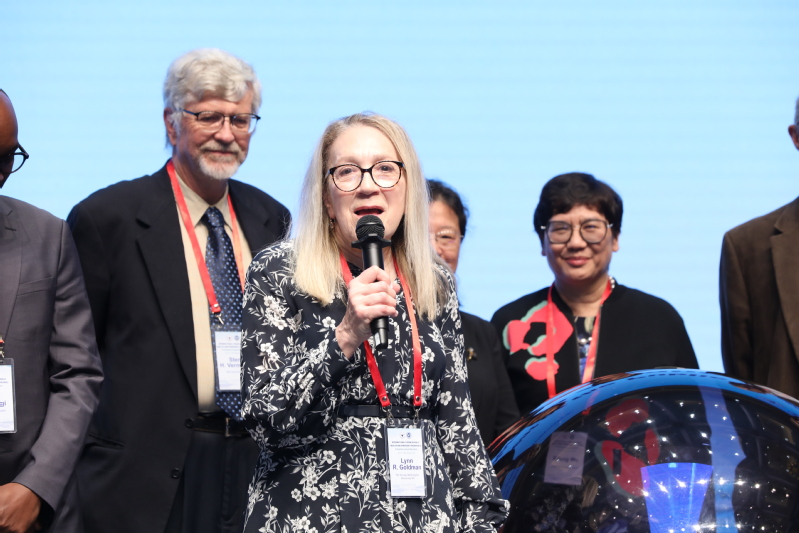
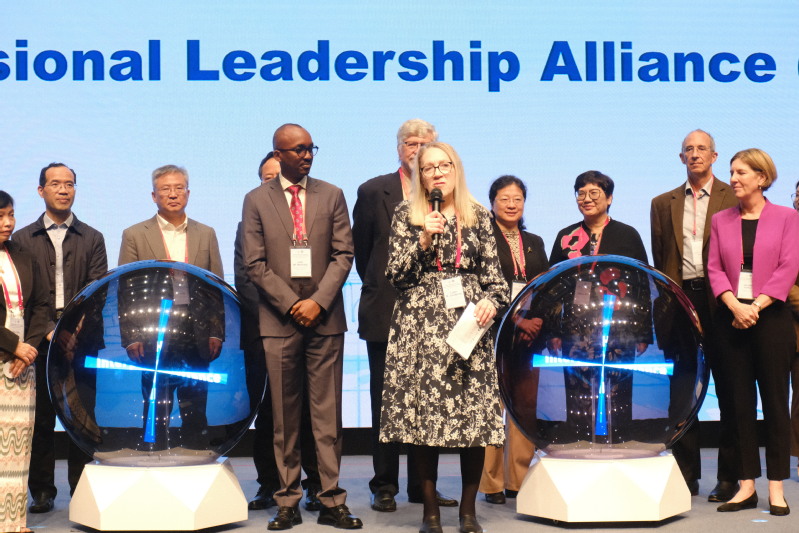
PHILA and GNAPH held a MOU signing ceremony. Dean Xifeng Wu and President Laura Magaña signed the collaboratio agreement together, witnessed by Dr. Jim Yong Kim, the former President of the World Bank, Dr. Sten H. Vermund, the Professor and Academician, School of Public Health, Yale University, Dr. Lynn R. Goldman, the Dean and Academician, the Milken Institute School of Public Health, George Washington University; Dr. Fujie Xu, the Deputy Director of the China Country Office, Bill & Melinda Gates Foundation, Dr. Siyan Zhan, the Dean of the School of Public Health, Peking University, and Dr. Songmin Ying, the Executive Vice Dean and Qiushi Distinguished Professor of Zhejiang University School of Medicine.
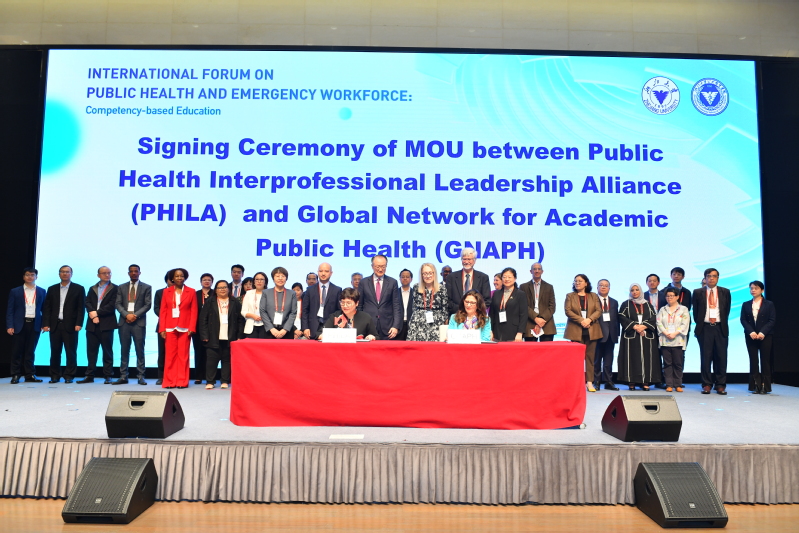
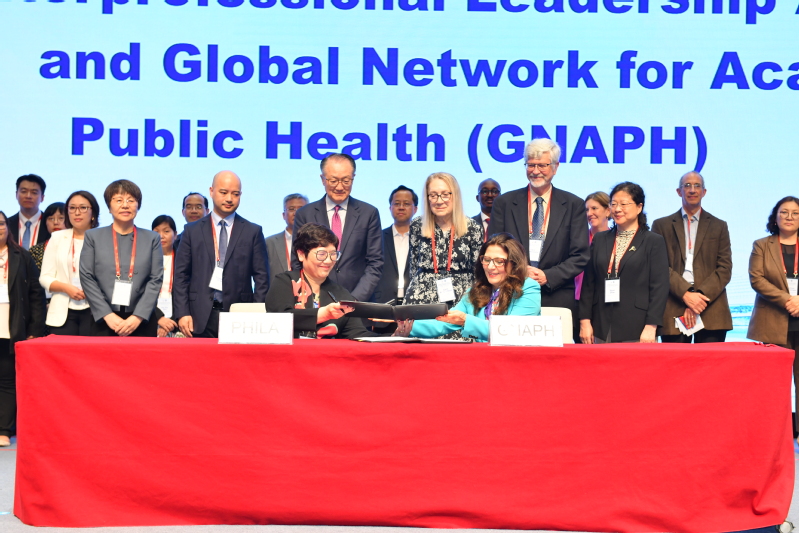
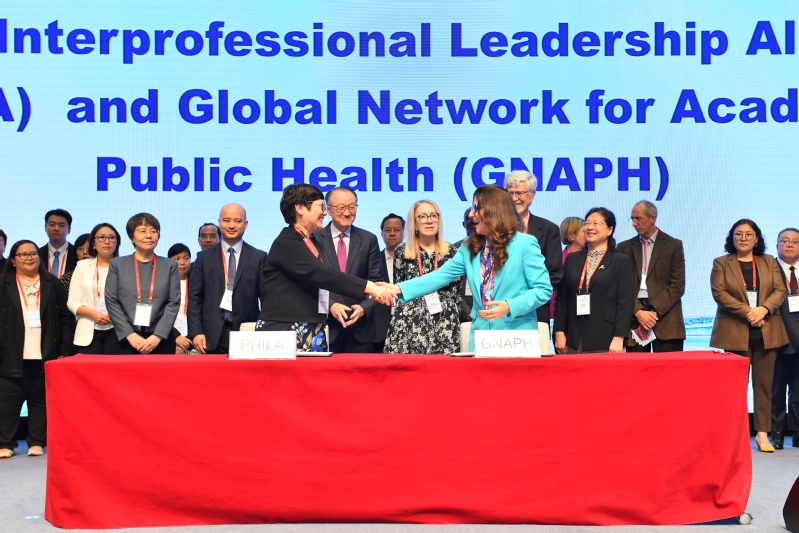
Following the ceremony, the Theme Forum Towards a Sufficient and Competent Public Health Workforce Through Global Partnership was successfully convened. Co chaired by Dr. Guoqing Hu, the Dean of the Xiangya School of Public Health, Central South University, and Dr. Shankuan Zhu, the Qiushi Distinguished Professor of the School of Public Health, Zhejiang University, Dr. Huan Xu, the Technical Officer at the WHO headquarters, and Dr. Masahiro Zakoji, the Technical Officer at the WHO Western Pacific Regional Office, respectively delivered keynote presentations on the WHO roadmap and action plan for national public health and emergency workforce development. Ms. Siobhan Fitzpatrick, the Technical Officer at the WHO Headquarters, delved into the WHO's competency-based education for the public health and emergency workforce. President Dr. Laura Magaña elaborated on the role of public health schools and programs in cultivating interdisciplinary leadership talents. Dr. Jim Yong Kim, the Former President of the World Bank, using drug-resistant tuberculosis as an example, reviewed the history of public health development and expressed the outlook on public health for the future path ahead.
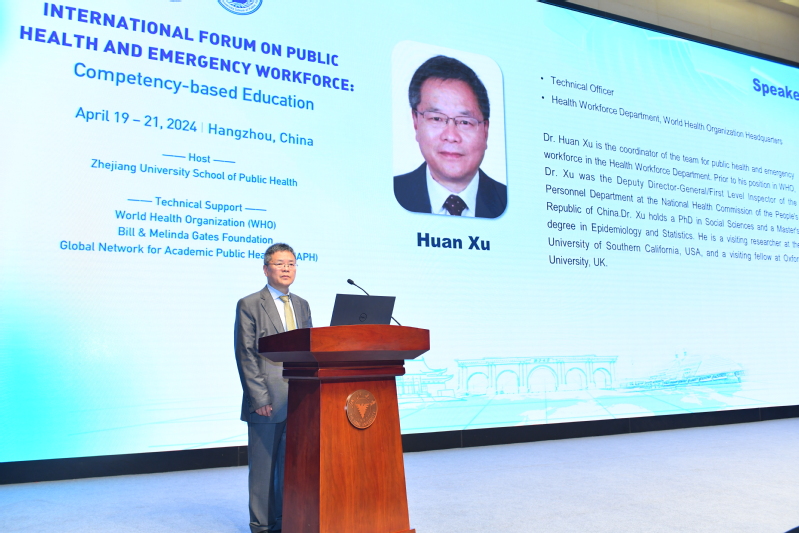
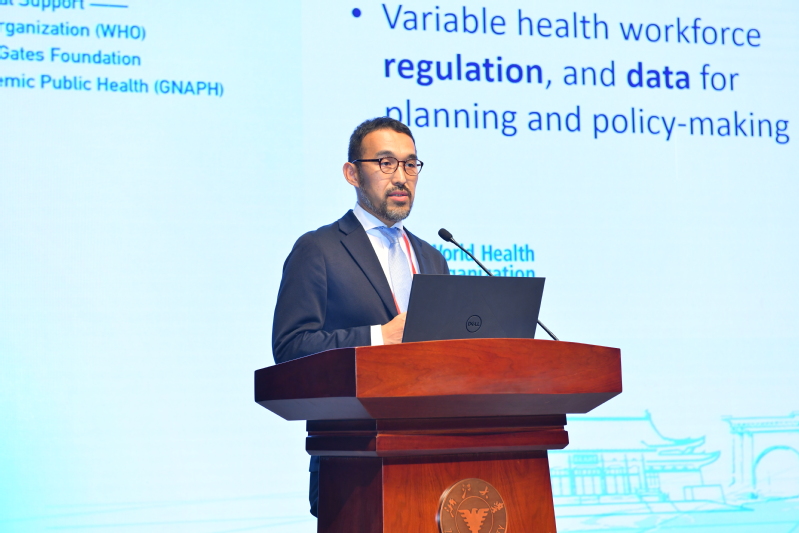

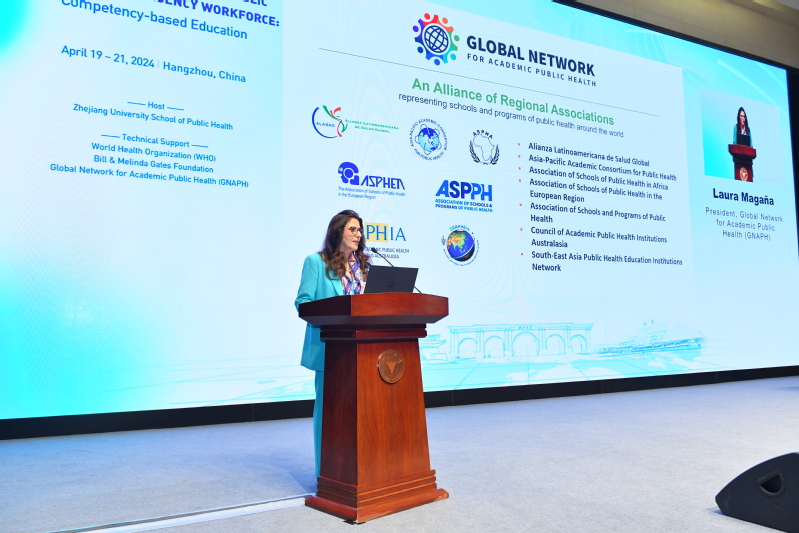
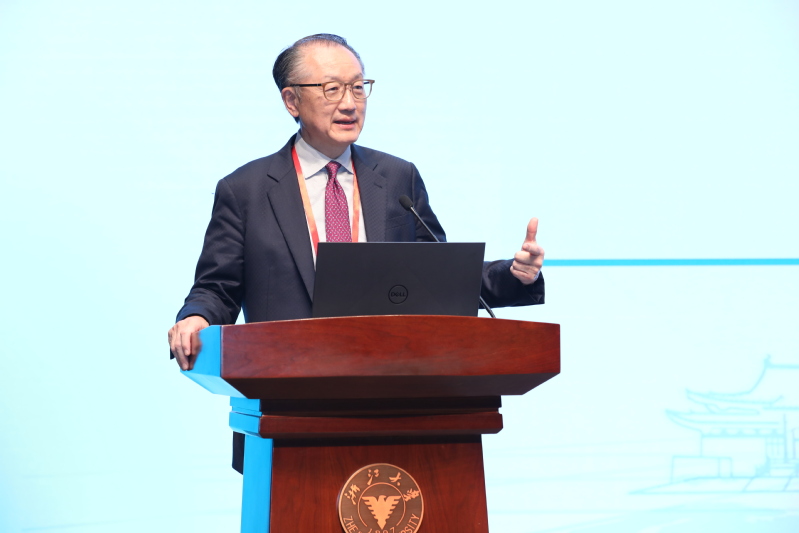
Co-chaired by Dr. Janelle Yorke, the Head of the School of Nursing, Hong Kong Polytechnic University, and Dr. Yawen Liu, the Dean of the School of Public Health, Jilin University, experts engaged in deep exchanges of ideas on Challenges in Public Health Education and Potential Solutions in China. Dr. Jianming Wang, the Dean of the School of Public Health at Nanjing Medical University, summarized the characteristics of public health education in China and emphasized the importance of optimizing theories, courses and textbooks. Dr. Na He, the Dean of the School of Public Health at Fudan University, introduced the teaching and talent cultivation efforts at Fudan University, highlighting the close connection between theory and practice. Dr. Siyan Zhan, the Dean of the School of Public Health at Peking University, shared insights on the construction of high-level public health schools and faculty profiles and proposed strengthening collaborative faculty training. Dr. Xiaoming Shi, the Deputy Director General of the Chinese Center for Disease Control and Prevention, proposed effective strategies for enhancing the training of in-service public health workforce.
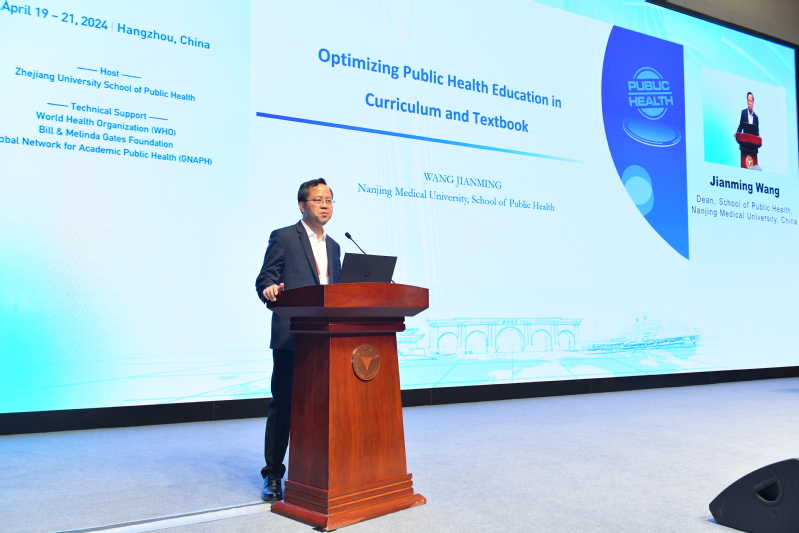
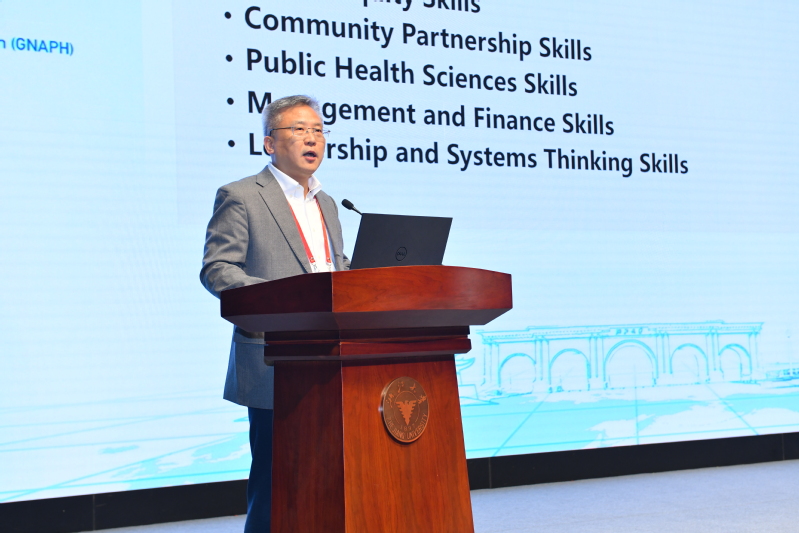
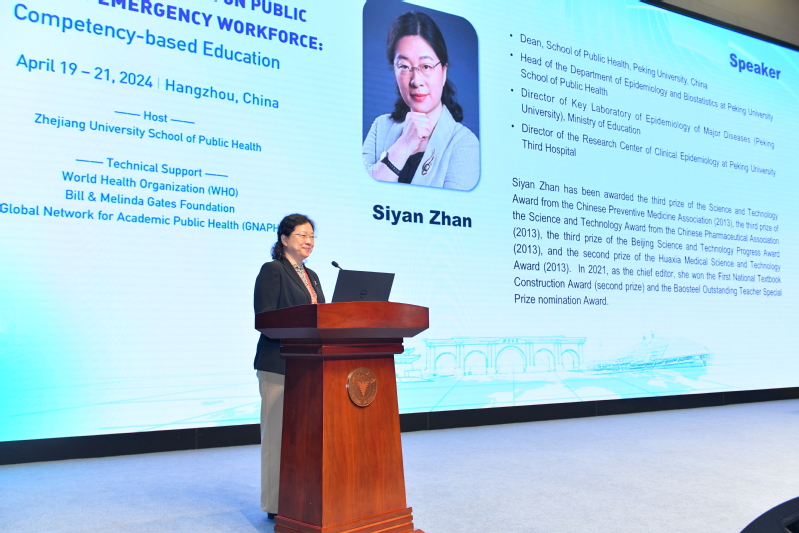
Under the joint chairmanship of Dr. Joel M. Mubiligi, the Interim Vice Chancellor of the University of Global Health Equity in Rwanda, and Dr. Zhengping Xu, the Qiushi Distinguished Professor at the Zhejiang University School of Public Health, Dr. Margaret Kaseje, the President of the Association of Schools of Public Health in Africa,offered an insightful analysis of the challenges in public health education in Africa and proposed solutions such as enhancing practical skills courses. Dean Xifeng Wu outlined the implementation plan for promoting the WHO's roadmap for competency-based education in public health and emergency response.
Finally, Dr. Jianrong Qiao, the Coordinator for Health Systems and Health Security Intraregional in WHO China, and Dr. Songmin Ying, the Executive Vice Dean and Qiushi Distinguished Professor of the School of Medicine at Zhejiang University, delivered summary remarks for the morning session. They looked forward to the future collaborations and developments in the field of public health.
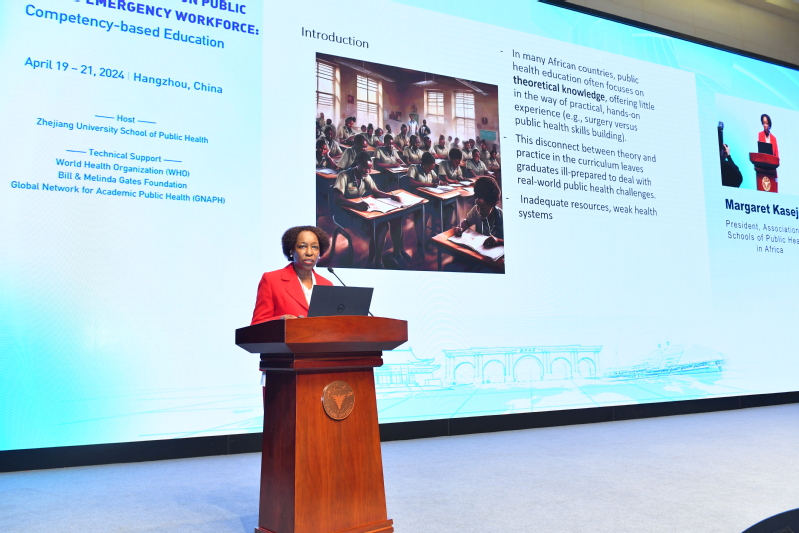
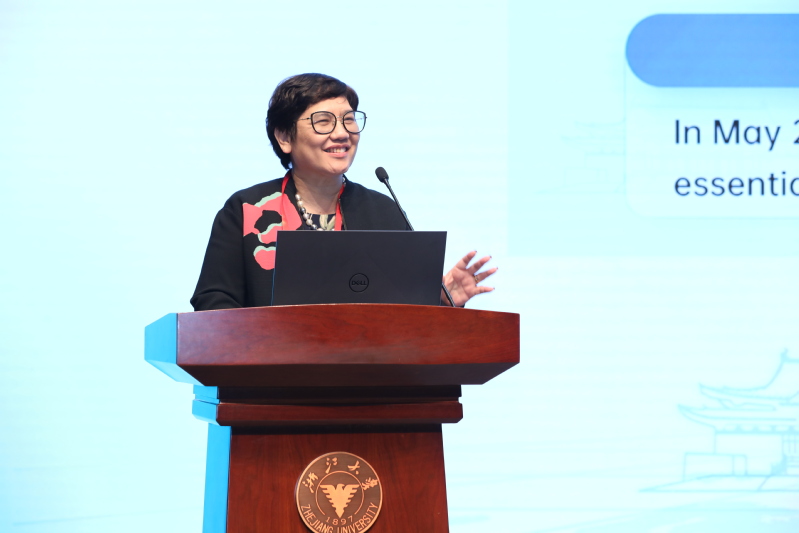
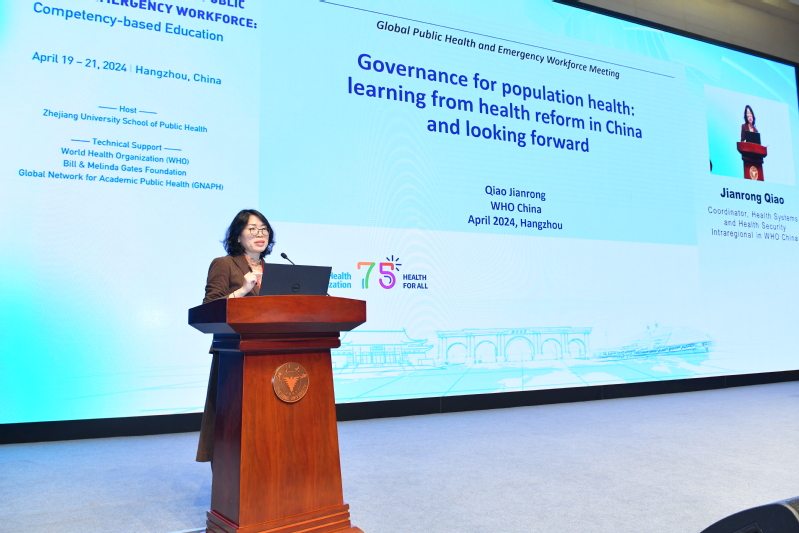
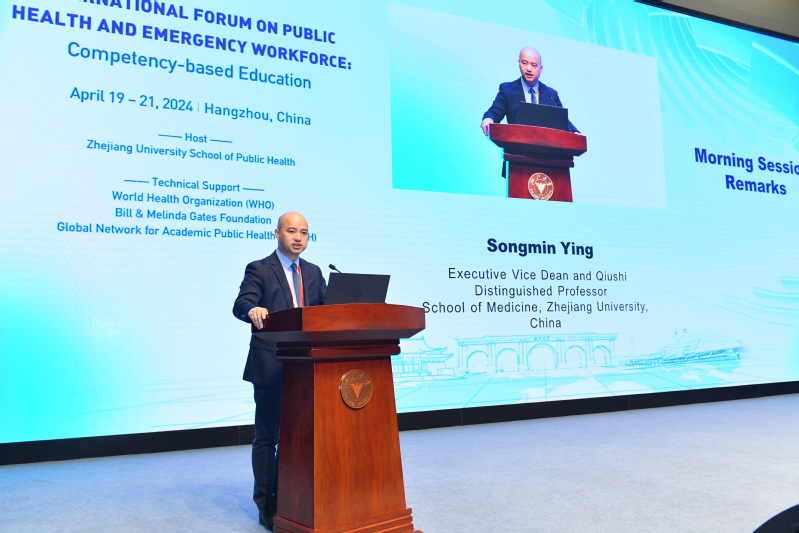
Strengthening Public Health Workforce through Interprofessional Collaboration
The Theme Forum on Enhancing Public Health Workforce Development through Interdisciplinary Collaboration was held at the YuanZheng QiZhen Hotel in Zijingang Campus, Zhejiang University. The forum focused on interdisciplinary cooperation to jointly build a peak in public health workforce development. President Margaret Kaseje, Dr. Tong Wang, the Dean of the School of Public Health at Shanxi Medical University, and Dr. Jingfu Qiu, the Vice President of Chongqing Medical University, co-chaired the forum. Dr. Sten H. Vermund, Dr. Lynn R. Goldman, Dean Xifeng Wu, and Dr. Jinling Tang delivered keynote speeches separately.
Academician Sten H. Vermund delivered a keynote speech titled What are Core Competencies in Global Public Health Research?, emphasizing the essential role of professionals from diverse backgrounds to address public health issues and proposing to continuously enhance the competitiveness of public health research under the guidance of the United Nations Sustainable Development Goals. Academician Lynn R. Goldman addressed Frameworks for Teaching Public Health Preparedness and Response and Early Detection of Health Threats, highlighting the need to strengthen the capacity of global health workers and to enhance the development of national public health teams while refining public health functional training. Dean Xifeng Wu presented a speech titled Digital Intelligence Empowering the New Journey of Health Science, emphasizing the need to break through challenges in efficiently acquiring, integrating, analyzing, and utilizing healthcare big data to create a new peak in digital intelligence-enabled health science and strongly support the construction of Digital China, Healthy China, and a community with a shared future for human health. Professor Jinling Tang's report focused on Public Health: The Population Approach to Health, expounding on the macroscopic ideas and strategies of public health and pointing out the new mission of public health in promoting human health.
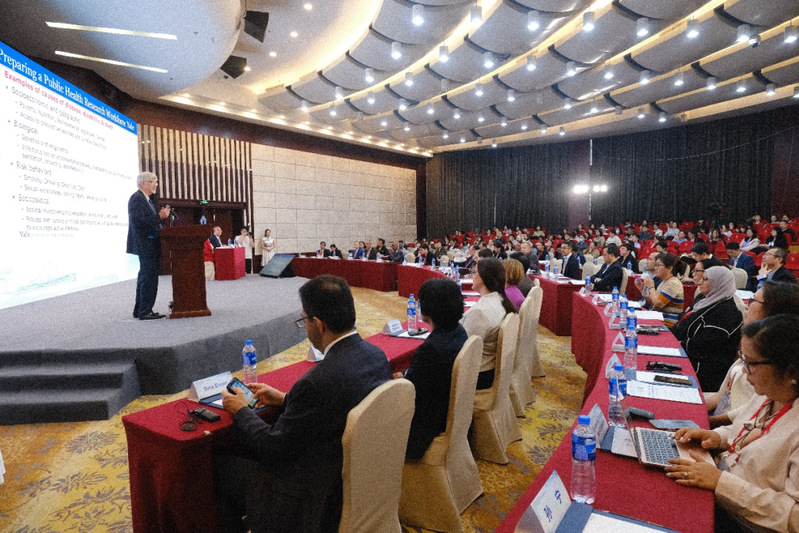
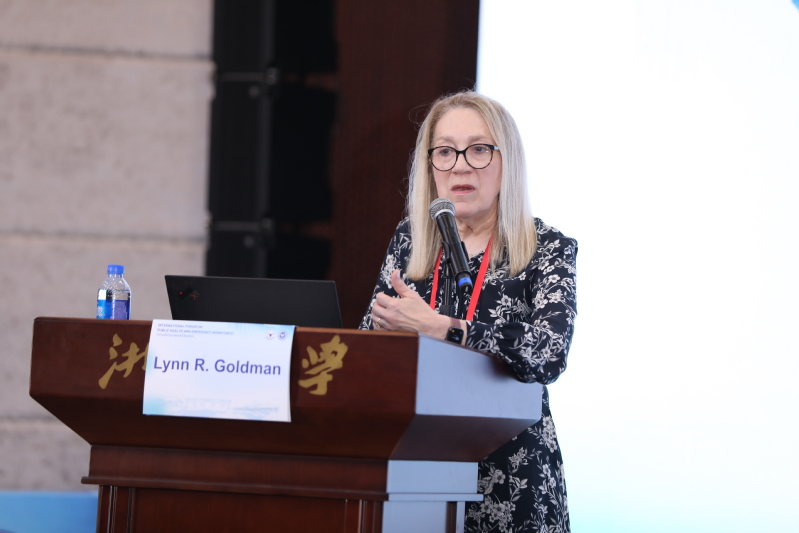
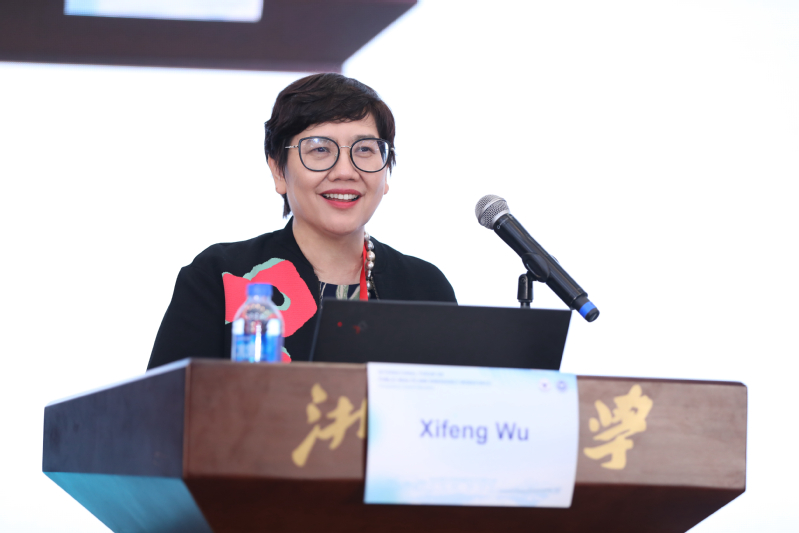
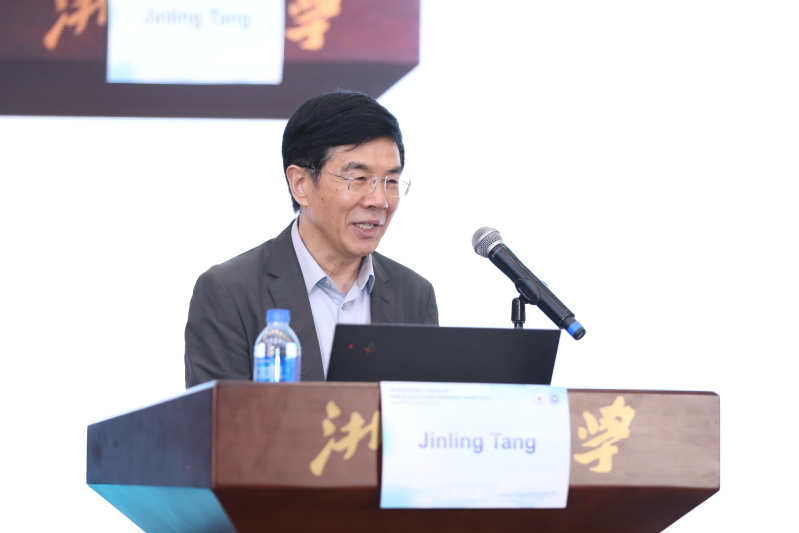
In addition, the conference included four parallel sessions, focusing on four themes: Optimizing Public Health Education: Theoretical Insights, Curriculum Strategies and Textbook Development, Connecting Public Health Education and Practice: A Global Perspective, Strengthening Collaborative Training to Nurture High-Quality Public Health Faculty, and Enhancing Professional Development Programs for In-service Public Health Workforce. Participants actively discussed and shared ideas on different topics in public health education. In terms of optimizing public health education, experts from the United States, Singapore, Myanmar, Thailand, Belarus, China’s mainland, and Hong Kong SAR, China proposed measures such as enriching the theoretical content of public health and developing courses on public health systems to address global challenges in public health education. Regarding the linkage between public health education and practice, experts pointed out the existing gap between public health education and practice. In terms of cultivating high-quality public health faculty, experts conducted in-depth discussions on strategies for cultivating high quality public health faculty, teacher development plans for cross-institutional collaboration and challenges and opportunities in interdisciplinary faculty development. In terms of enhancing professional development programs for in-service public health personnel, experts from the United States, Laos, Brunei, Myanmar, Mongolia, Kyrgyzstan, Ethiopia, and China shared their national programs, challenges, solutions, and potential areas of collaboration in their countries, emphasizing shared and collaborative solutions.
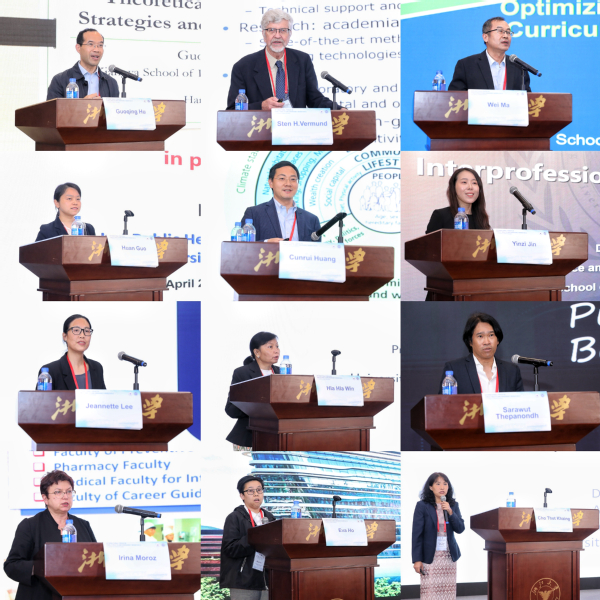
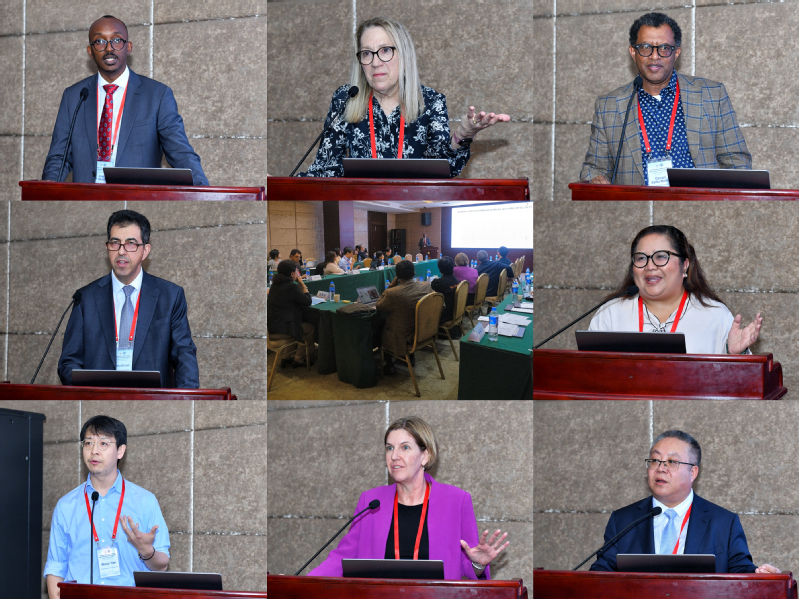

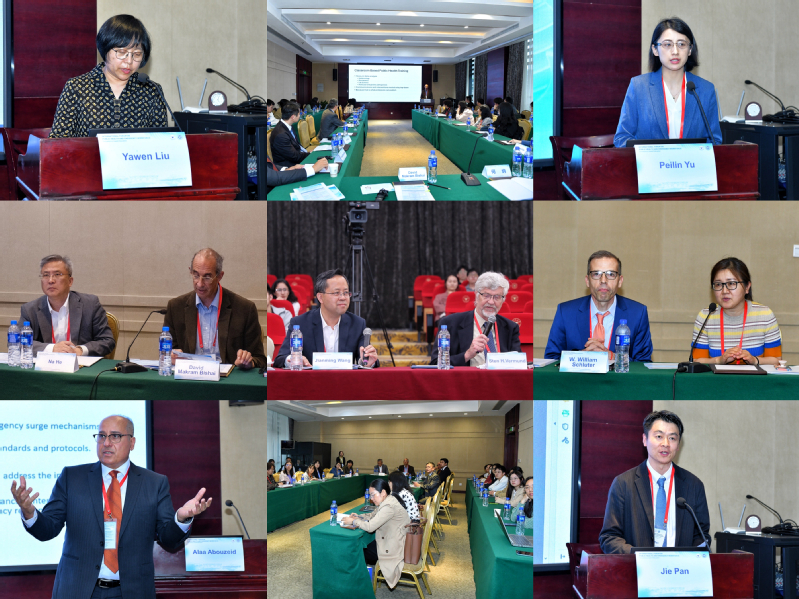
Innovative Strategies and Partnerships to Advance the Implementation of the WHO Roadmap
On the morning of April 21st, the forum on Promoting the Implementation of the WHO Roadmap through Strategic Innovation and Global Collaboration was launched in the Conference Room of the Innovation Building at the School of Public Health, Zhejiang University. President Laura Magaña and WHO technical officer Ms. Siobhan Fitzpatrick presided over the forum, which focused on discussing innovative strategies for advancing the implementation of the WHO Roadmap and key initiatives for implementing PHILA.

Chairs from four parallel sessions on April 20th summarized and exchanged ideas during the discussions. Academician Sten H. Vermud emphasized the significance of leveraging online education resource-sharing platforms represented by MOOCs to promote the sharing and exchanges of learning resources across different disciplines globally, which was crucial for the development of public health education and the advancement of the WHO Roadmap.
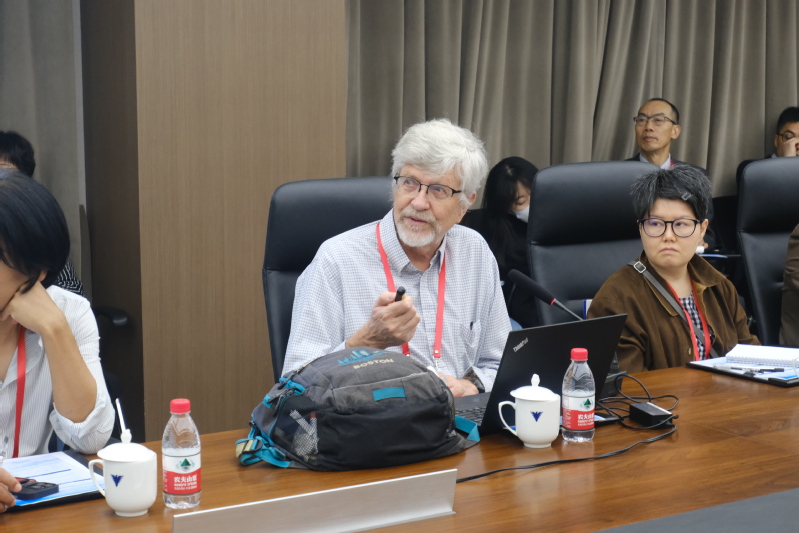
Professor David Makram Bishai, the Dean of the School of Public Health at the University of Hong Kong, highlighted three key points for advancing the WHO Roadmap and emphasized that the roadmap's key lied in reforming outdated talent training systems and addressing the critical contradictions that hinder effective talent performance in public health roles.
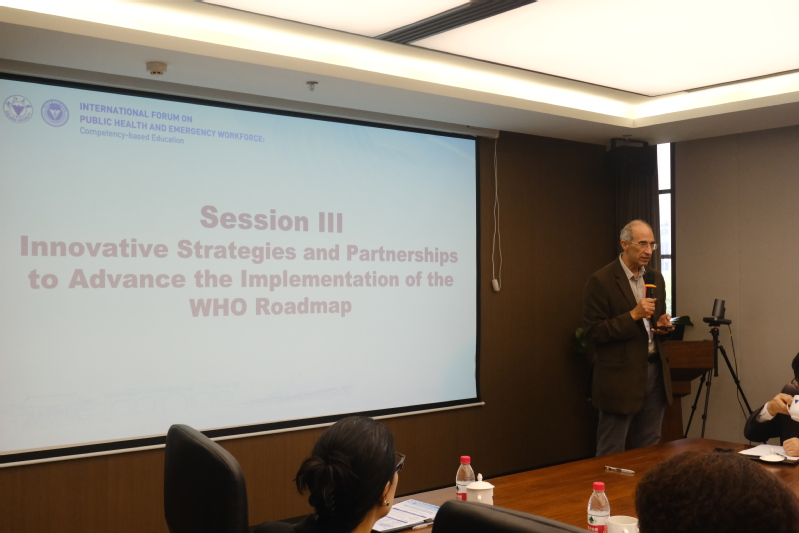
Academician Lynn R. Goldman summarized the experts' views and insights around three themes: faculty training, collaborative development projects, and interdisciplinary challenges and opportunities.
Dr. W. William Schluter, the Director of the US Centers for Disease Control and Prevention's China country office, introduced the professional development plan for in service public health personnel, pointing out that countries around the world have been taking measures to strengthen the professional development of public health talent teams actively.
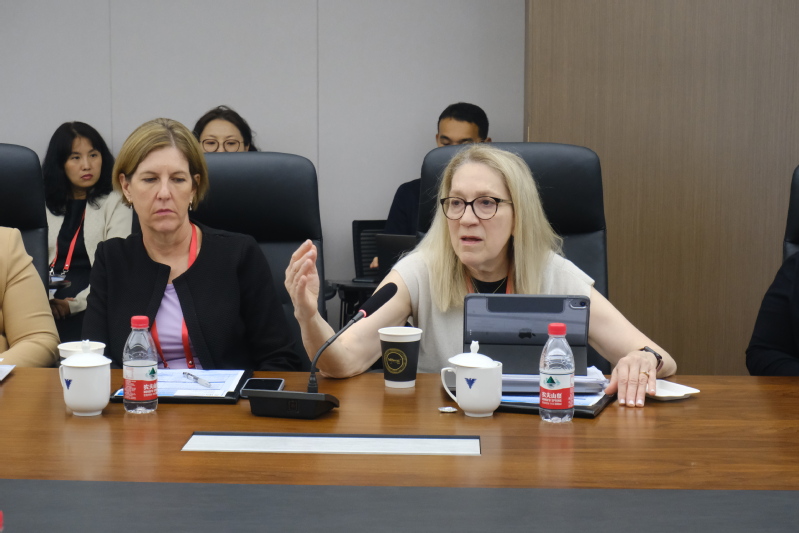
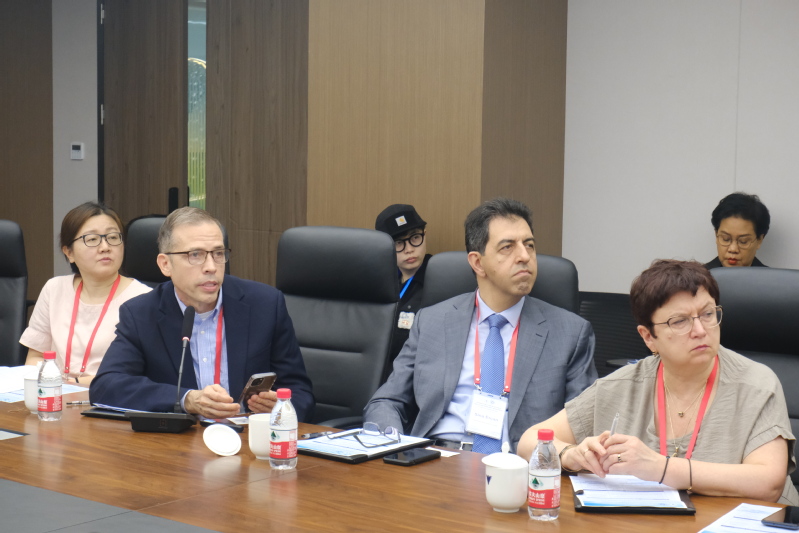
Ms. Siobhan Fitzpatrick, the technical officer at the WHO headquarters and the moderator of the forum, highlighted that the focus of this conference was to summarize the current situation, identify problems, and propose improvement suggestions. Dr. Alaa Abouszeid, a senior program officer at the Bill & Melinda Gates Foundation, and President Margaret Kaseje emphasized the need to prioritize flexible and effective solutions for countries facing emergencies where a favorable environment has yet to be established.
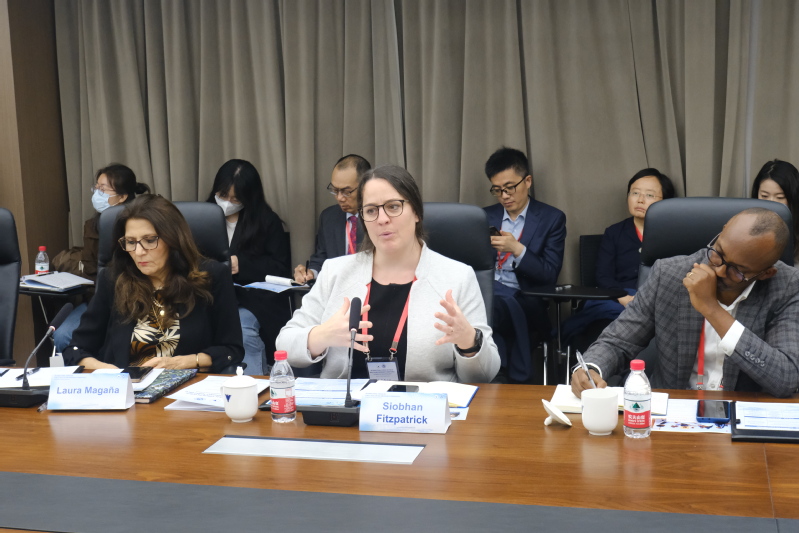
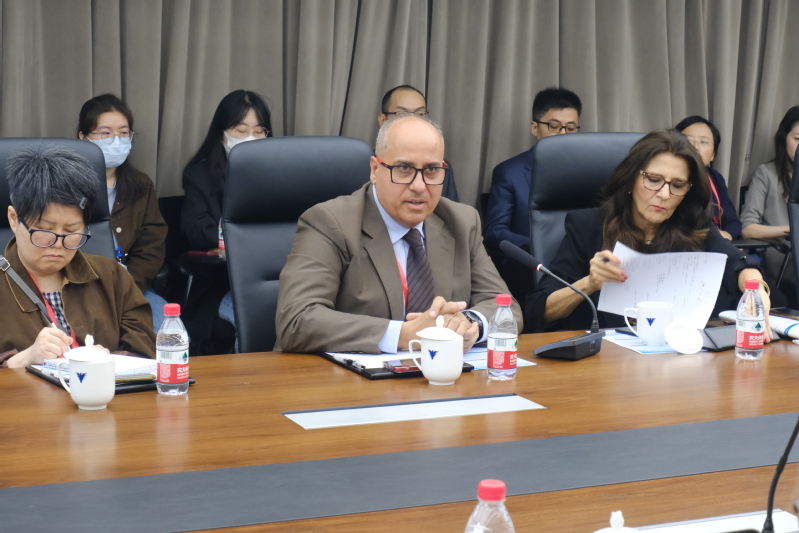
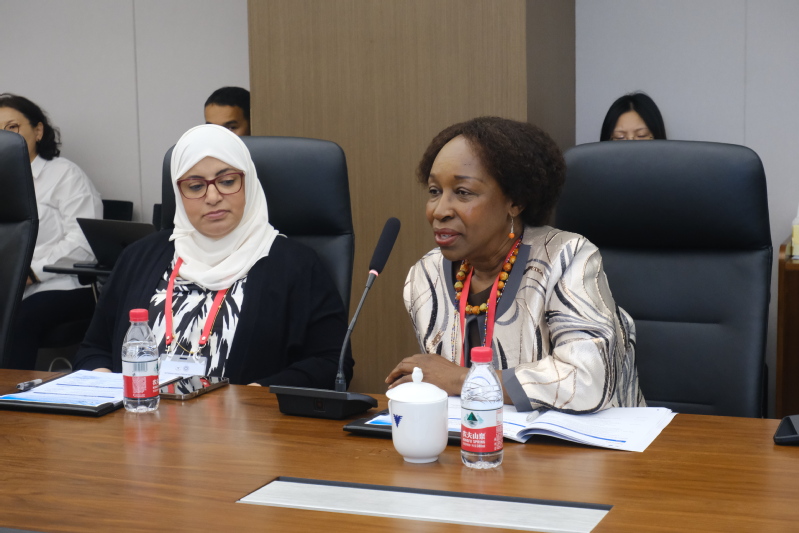
President Laura Magaña, the forum moderator, expressed that while challenges in advancing the WHO Roadmap still exist, we must have firm beliefs, reshape our thinking, and be fully prepared for reform. We should jointly promote competency oriented education and public health team building to improve the implementation level of the WHO Roadmap.

During the PHILA discussion, Dean Xifeng Wu stated that activities such as hosting nternational summits, establishing online platforms for public health education exchanges, and strengthening international teaching and research cooperation can be taken to foster a highly professional public health workforce. Dean David Makram Bishai pointed out the crucial issue of the current lack of specialized courses for capacity building in public health. Vice Chancellor Joel M. Mubiligi introduced a community education project targeting international students. Technical officer Dr. Masahiro Zakoji pointed out the similarities between China and Japan in education and called on PHILA to actively seek funding and share open-source resources. President Margaret Kaseje emphasized that course sharing is an important aspect of collaboration,and diversified exchanges and cooperation, such as case discussions, should also be conducted. Dr. Ammar Barba Moreda, the Chief of Staff at the Office of the Director General at the Ethiopian Public Health Institute, believed that it is crucial to integrate public health and emergency development into broader health system goals and human resource development plans. Finally, Dean Xifeng Wu and President Laura Magaña expressed heartfelt gratitude to the participants and summarized the discussion.
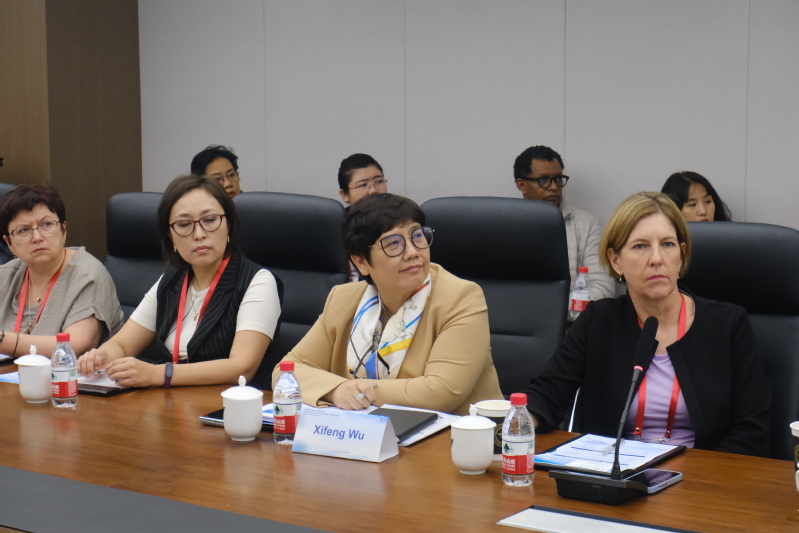
After the meeting, the participating guests visited the Intelligent Health Laboratory led by Dean Xifeng Wu at Zhejiang University. They toured the cutting-edge research platforms such as the one-stop sample processing, nucleic acid extraction-library preparation sequencing-transcription-protein-metabolite detection platform and the automated biobank with a capacity of storing 4 million samples.
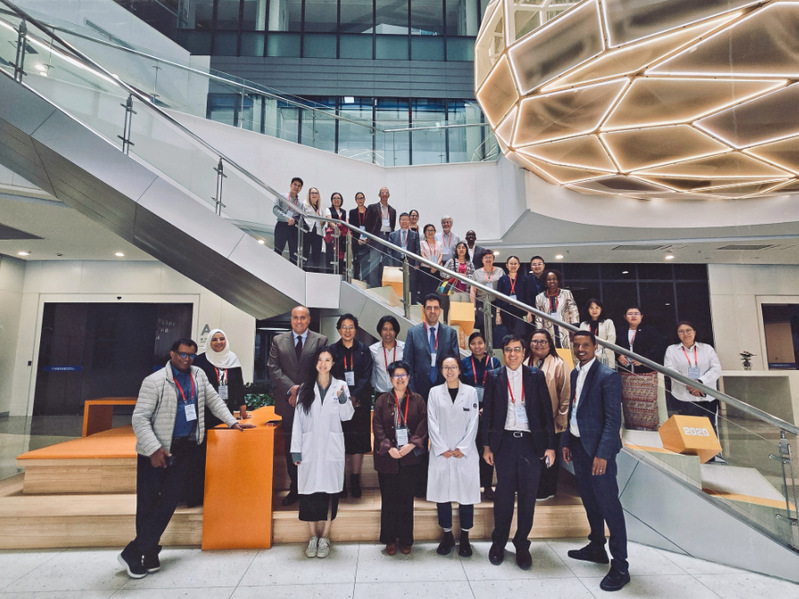
In the end, the International Forum on Public Health and Emergency Workforce: Competency-based Education concluded successfully. Let us work together to strive for the realization of global public health goals!


